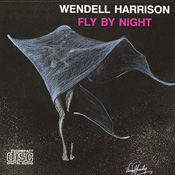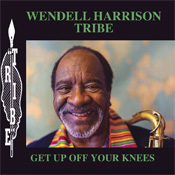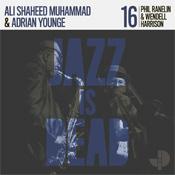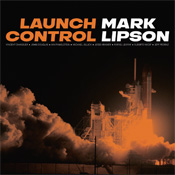Recent Recordings by Area Artists
Wendell Harrison, this year’s recipient of SEMJA’ s Ron Brooks Award, has been a mainstay on the Detroit music scene for decades as an instrumentalist, educator, organizer, and cultural warrior, recognized throughout the world. Like most Detroit jazz musicians of his generation, he began his journey as a student of Barry Harris, who had developed his own method of teaching the language of bebop. Indeed, many years later he would publish two volumes of The BeBopper’s Method Book (rebirth Inc.), that expanded on these ideas. His music has traversed many stages, and he has explored various approaches and ensemble types in his prodigious discography. Harrison’s three most recent releases cover a wide range of musical approaches, characteristically looking back and to the future at the same time.

A 1990 album that has been recently re-released in several media, from CD to LP, is Fly by Night, originally on Harrison’s own WenHa label. This marked a return to acoustic jazz grounded more in updated bop and post-bop stylings in a classic Detroit manner, in the notable company of pianists Kirk Lightsey and Pamela Wise, vibraphonist Rob Pipho, bassist Cecil McBee and Jaribu Shahid, and drummer Doug Hammond. On this album Harrison featured his prodigious clarinet playing, an instrument he was focusing on at the time and continues to develop to this day. There is much to savor here: Lightsey’s consistently creative piano, Pipho’s crafty vibes, or the subtle drive of Hammond’s drums. But the music is dominated by the clarinet, and it is fascinating to hear how Harrison had developed his own concept for the instrument, on which he already then had few equals in jazz. The fleet mastery, the subtle inflections, and expressive tonal palate are used to great effect on standards such as “Bye Bye Black Bird” or “In Your Own Sweet Way,” arranged in interesting ways. He only picks up his tenor on the final “Changing the Scene” to remind us of his power and subtle expressiveness on his customary horn.

The second recording to be considered here is Get Up Off Your Knees, a multifaceted concept album that delves deep into the educational and cultural historical lesson grounded in a commitment to self-determination and self-reliance that were central to the messages of the Tribe organizations and have guided Harrison ever since. This is expressed in a series of eleven compositions with a varying large cast of artists too numerous to list here, including pianists Pamela Wise and Alex Lecombe, trombonist Vincent Chandler, flutists Kassan Belgrave and Steve Woods, drummer Louis M. Jones III, singer and bassist Pathe Jassi, poet Mbiyu Chui, vocalist Miche Braden, and many others.
In his notes he observes that the project
“illuminates the African diaspora who emanated from West Africa, such as Guinea-Bissau and Senegal, which are part of the culture fabric of Detroit. Also, we are reflecting the intellectual ideas on education and expanded consciousness of the indigent communities and the future of the youth in Detroit as well as the world.”
This is reflected in the variety represented here, from bop, funk to sambas, some with message lyrics with English or African words. These range from the impassioned lessons of Mbiyu Chu’s “Educators” or Pathe Jassi’s “Samoulén Khalé Yi,” apparently “Save the Children,” to the witty but very serious “Revolution” that begins “the fourth revolution will not be advertised” and turns out to be an ingenious riff on Gil Scott-Heron’s classic “The Revolution Will Not be Televised,” made relevant for our times two decades later, composed by Pamela Wise, with Chui reciting his own lyrics and Harrison on tenor making it his own, taking the place of flutist Hubert Laws. Harrison has brought together a wonderful group of artists with of different origins, generations, and even languages, to create a unified tapestry that illustrates the rich African American cultural legacy of Detroit in all its artistic diversity.

The final installment of this trio of recordings demonstrates how Harrison and his old Tribe comrade trombonist Phil Ranelin embrace contemporary artistic currents, as always feeling the pulse of more popular elements of the times, as they did throughout their careers. On the album Phil Ranelin and Wendell Harrison, they combine with electric bassist and veteran hip hop producer Ali Shaheed Muhammad and his close associate, multi-instrumentalist Adrian Younge (Fender Rhodes piano, Hammond B3 organ, Mellotron, electric and acoustic guitars, marimba, clavinet, electric sitar, alto and sopranino saxophones, flutes, percussion), with drummer Greg Paul. Los Angeles-based Muhammad and Younge have been producing music for years, working with prominent artists such as Kendrick Lamar. Here, they apply their technological and instrumental magic to reimagine the funky, spiritual jazz of the great seventies’ albums from Detroit’s Tribe records era, in a sense reimagining the first Tribe LP by the founders of the organization, Ranelin and Harrison, An Evening with the Devil (1973). The ambiance is definitely of now, with overlaid sounds and some processing of Harrison and Ranelin’s lines, as are some of the rhythmic hip hop and funk patterns, powerfully driven by Muhammad and Paul, but everything fits perfectly together and only enhances the atmosphere, including the emotional and political essence of the original works, as the producers’ sounds twirl around the core of the music, which remains firmly centered in Ranelin’s dusky trombone sounds and Harrison’s tenor sax and bass clarinet. Muhammad and Younge have been at this for a while, reimaging for new audiences the works of Roy Ayers, Lonnie Liston Smith, Gary Bartz, and others, on their Jazz is Dead label with respect and imagination. Here, their collaboration with Ranelin and Harrison is seamless, as the timeless artistry of the Detroit masters erases history, fully embracing the music of new generations.

Mark Lipson has released his fifth Detroit Jazz Collective CD entitled Launch Control, this time featuring Vincent Chandler, trombone; John Douglas, trumpet and flugelhorn; Rafael Leafar, tenor and soprano saxophones; Ian Finkelstein and Michael Jellick, piano; Jeff Pedraz, bass; Jesse Kramer, drums; Lipson, percussion; and Alberto Nacif, congas. This celebration of Detroit and area instrumentalists also focuses on their compositional skills, this time featuring the works of Jellick, Chandler, Brad Felt, and the leader. Lipson takes great care to curate a complete recital, so that the tunes logically follow one another, picking up cues as it were, but also providing atmospheric and rhythmic contrasts. He has chosen the musicians with care with specific tonal palates in mind.
There is a fine balance between composition and improvisation here. The tunes are not simply pretexts for blowing on the harmonies, but rather provide thematic and rhythmic matrixes for the soloists, who are prompted to craft their statements with a variety often missing in this kind of music. The title tune was composed by the late virtuoso low brass master Brad Felt, who whose memory Lipson keeps alive by featuring his works on his releases. This is a fast boppish one that inspires hard driving solos from Finkelstein, Douglas, and Leafar, leading to an exuberant drum solo that celebrates the spirited nature of the piece. Chandler’s clever “The Boss” comes next and its opening bars seem almost an extension of what we just heard, except that it breaks into a Latin beat. The solos continue with stop time sections followed by the Latin tinge. Leafar on tenor takes it out, reaching high and mighty, so Jellick’s piano and Pedraz’s bass follow in a more traditionally melodic, if no less rhythmically driving manner. When we then move on to the final to compositions from Lipson’s pen, Leafar switches to soprano sax adding a new color to the ensemble. On “Nigerian Love Call” his solo begins with melodic restraint but builds intensity to a climax, his sound on the instrument sweet and pure, quite his own. Chandler picks up the spirit with a fleet statement of his own. On the final cut, “The River Runs Sweet,” the one ballad of the recording, Lipson contrasts the sounds of the soprano and the trombone, taking full advantage of the tonal masteries of Leafar, Chandler, combined with Finkelstein’s romantic majesty. A sweet ending to a wonderful, intelligently crafted recital.
